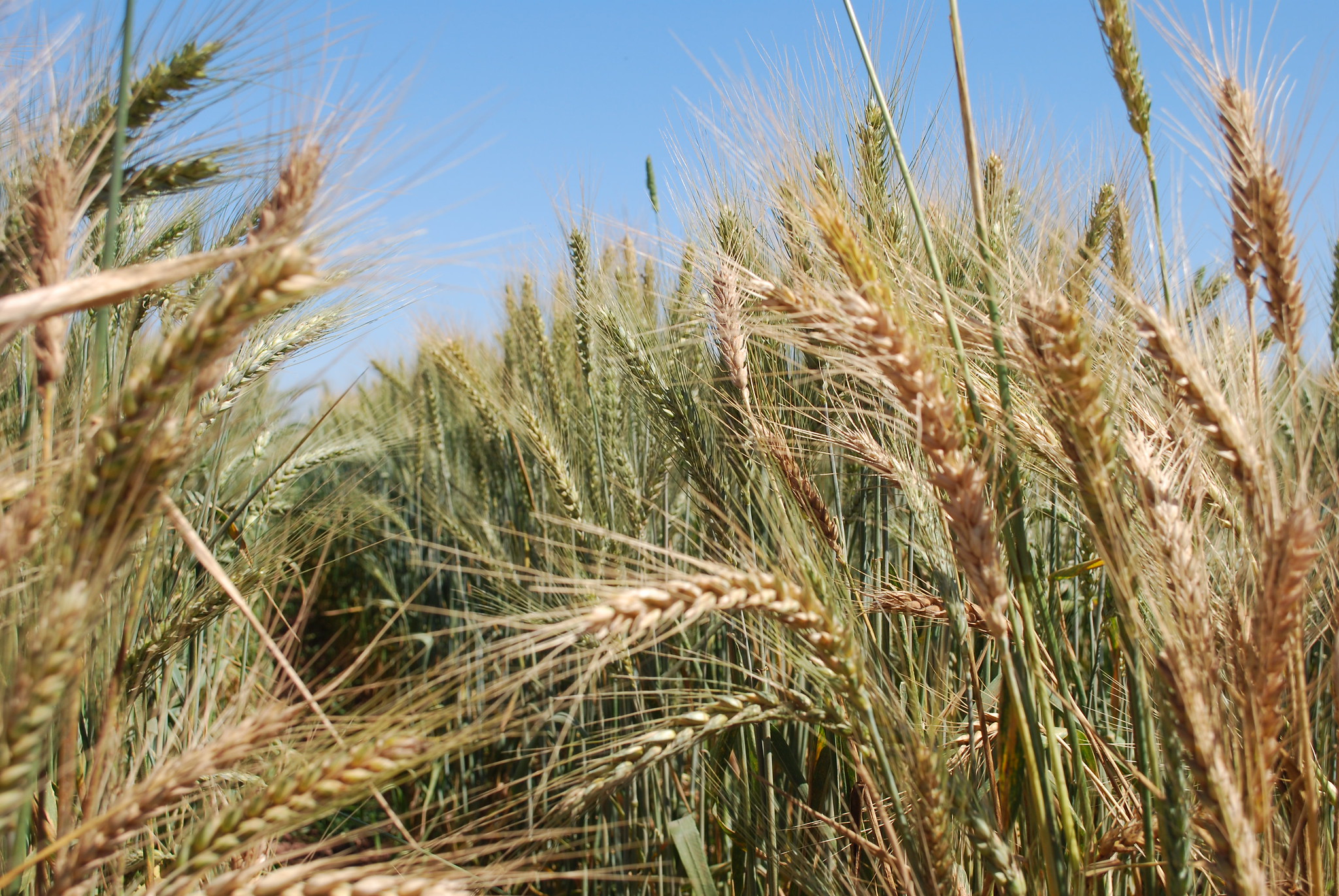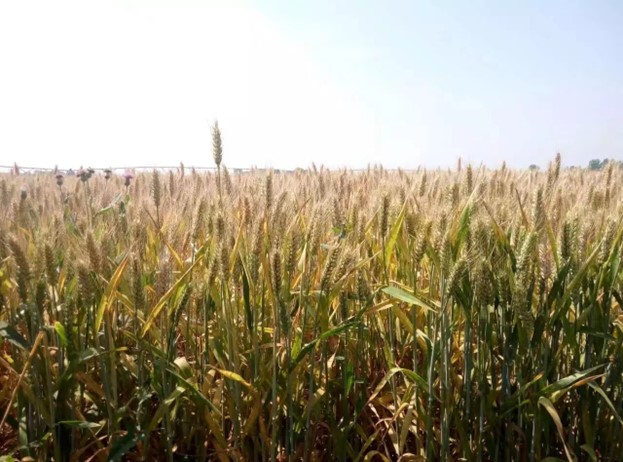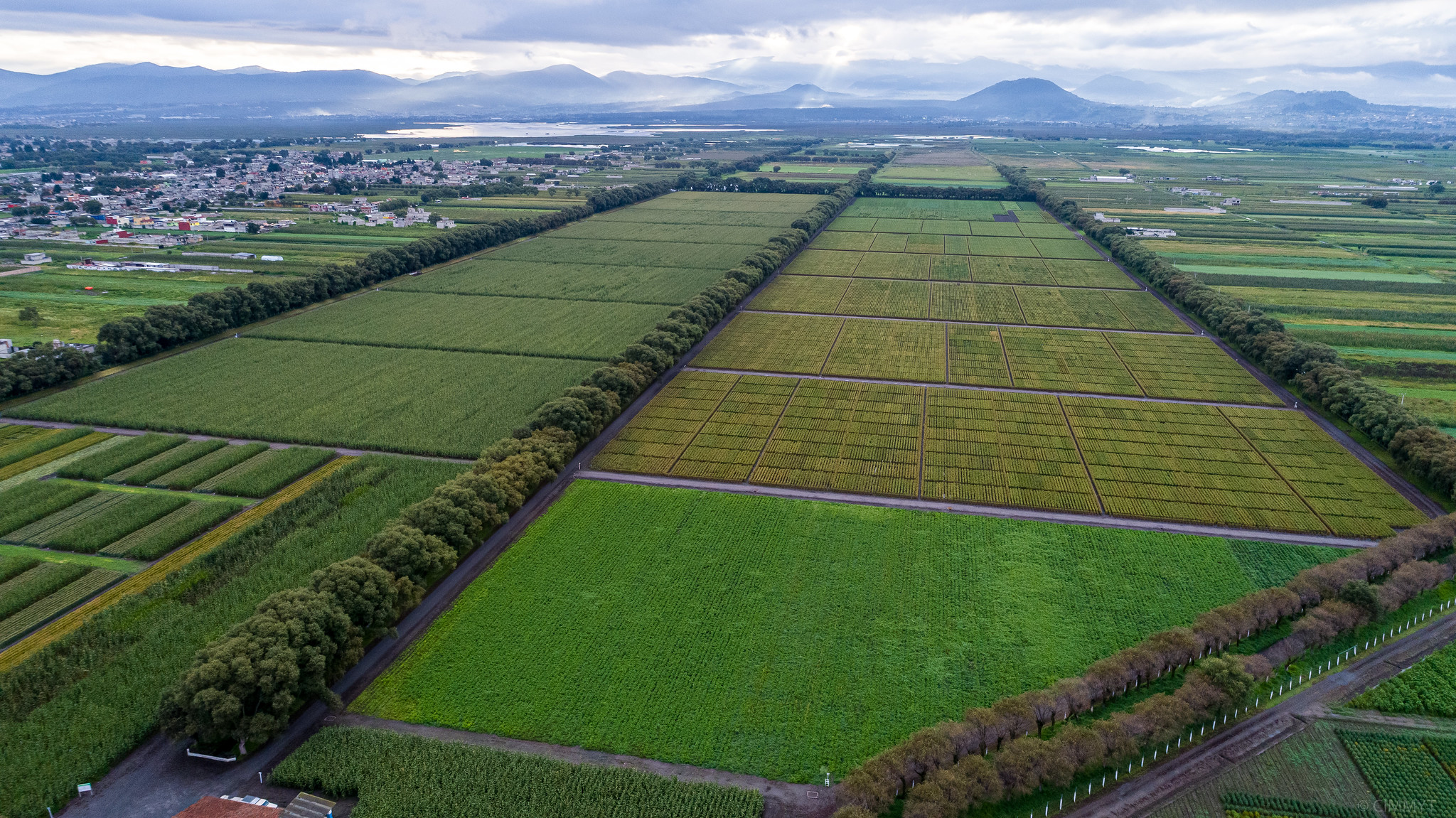When one thinks of heat waves, the natural tendency is to consider high daytime temperatures. However, when most people are sleeping, a hidden factor of climate change is taking place: temperatures at night are not dipping as much as observed in the past, which has dramatic effects on many crops, including wheat. In fact, nocturnal temperatures are rising more rapidly globally than daytime temperatures, which is of great concern as research is starting to show the sensitivity of plants to warmer nights.
A group of researchers, from the University of Nottingham, the Sonora Institute of Technology (ITSON) and CIMMYT examined how different wheat lines reacted to the effects of rising nighttime temperatures treatments imposed in the field, for three years at CIMMYT’s Norman E. Borlaug experimental station in Ciudad Obregon, Mexico. Their results, Night-time warming in the field reduces nocturnal stomatal conductance and grain yield but does not alter daytime physiological responses were published in New Phytologist.
Previous studies revealed that wheat yields decline 3-8% for every 1°C increase of the nighttime low temperature. For this research, the team subjected the selected wheat breeds to an increase of 2°C. The varieties were selected based on previous evaluations of their daytime heat tolerance.
Notably, the findings highlighted that genotypes classified as traditionally heat tolerant were sensitive to small increases in nighttime temperature even without daytime temperature stress, implying that adaptation to warm nights is likely under independent genetic control than daytime adaptation.
“These results are exciting as they offer new perspectives on the impact of night temperatures on diurnal photosynthetic performance and wheat yields,” said co-first author Liana Acevedo-Siaca. “Through this work we found that wheat yields decreased, on average, 1.9% for every degree that increased at night. Our hope is that this work can help inform future breeding and research decisions to work towards more resilient agricultural systems, capable of dealing with warmer day and nighttime temperatures.”
Plants at night
While plants do not “sleep” in the way animals do, nighttime for plants has long been thought of as a time of repose compared to daylight hours when photosynthesis is taking place. However, recent findings have revealed that plants are more active than previously thought at night, for example in transpiration, which is the process of plants gathering liquid water from the soil and releasing water vapor through their leaves.
“An interesting result of our research was that we found varieties characterized as heat tolerant, showed some of the greatest declines in yield in response to warmer nights,” said co-first author Lorna McAusland, Division of Plant and Crop Sciences, School of Biosciences, University of Nottingham. “These are the varieties wheat farmers are being recommended for increasing daytime temperature, and so there is a worry that advantages gained during the day are being lost at night.”
“There is likely a goldmine of opportunities related to genetically improving nighttime processes in crops, as very little research has been conducted in that space. Useful genetic variation can be expected, since ‘night’ traits have never been considered or needed before now,” said co-author Matthew Reynolds, who leads the CIMMYT’s Wheat Physiology Lab that collaborates globally with experts via HeDWIC (https://hedwic.org/) and uses physiological pre-breeding as a conduit for cutting edge technologies to impact mainstream breeding.


 Climate adaptation and mitigation
Climate adaptation and mitigation 
